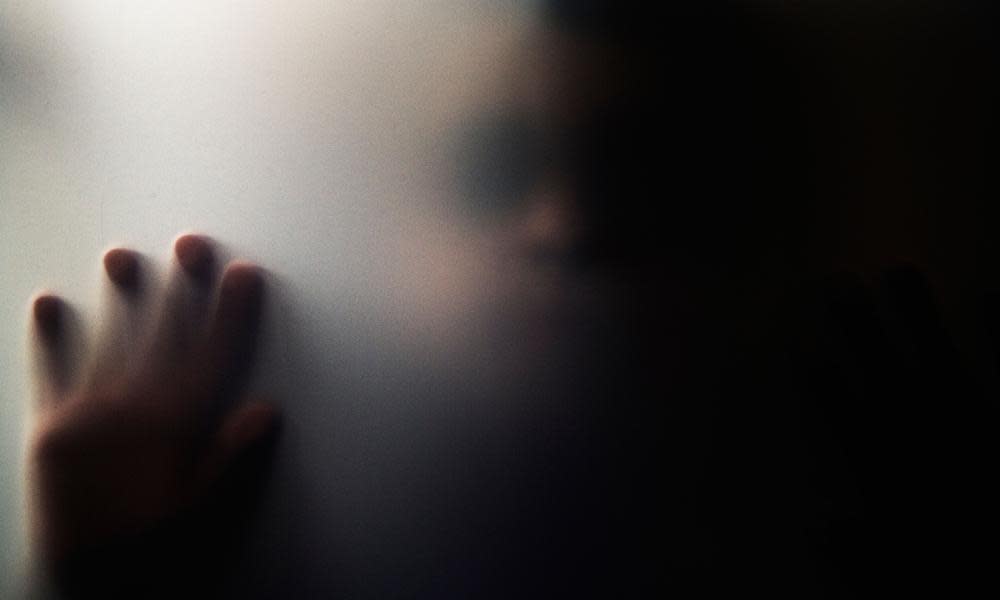The Apparition Phase by Will Maclean review – unleashing ghosts

Tim and Abi Smith are teenage twins growing up in a lower middle-class household in the early 1970s. They are obsessed with ghosts, but also with “standing stones, witches, curses, the British countryside, the ancient Egyptians […] the Vikings, voodoo, vampires, the mythical giant squid, real-life accounts of people being attacked (and, even better, devoured) by large wild animals, Dracula, Doctor Who, space exploration, the futuristic domed cities that people would one day live in on the ocean floor”, et cetera. They decide to fake a photo of a ghost in their attic and – guess what? – terrible consequences ensue.
The Apparition Phase is Will Maclean’s first novel. Already a successful TV writer, he certainly knows how to twist and turn. With their fake ghost photo, Tim and Abi release some kind of malevolent spirit into the world, which soon leads to Abi going missing, Tim going crazy, their parents separating, and before you know it poor Tim is being hauled off by a bunch of hippy paranormal researchers in corduroy and kaftans holding seances in a big old haunted house in the Suffolk countryside and it’s Hammer Horror time.
Anyone who remembers the 70s will thrill to Maclean’s depiction of the period, which has a kind of popular historian’s vague-accuracy, like a Dominic Sandbrook BBC4 documentary: teachers stink of cigarettes and Murray Mints; NF graffiti is painted in gloss paint; there are church jumble sales and bring-and-buy fairs; “Clunk Click” is on the telly with Jimmy Savile; and ice-cream vans go up and down playing “Greensleeves”. Occasionally, the insistent historicising comes to dominate: details of the 1972 Christmas TV schedule, including the BBC adaptation of an MR James short story “A Warning to the Curious”, and Nigel Kneale’s creepy The Stone Tape, are certainly relevant, if ever so faintly smelling of Google.
For all the Scooby-Doo-style hokum, the novel is notable for its very traditional English obsessions with social class and smothered grief
But for all the Scooby-Doo-style hokum – there’s a dusty old bookshop, an abandoned factory, and some LSD-taking in a squat – The Apparition Phase is notable for its very traditional English obsessions with social class and smothered grief. When Tim finds himself gathered in the apparently haunted house with a bunch of other disturbed teenagers, the posh blokes call him “Comprehensive” and there’s some excellent knock-about business to do with aspirational 70s stuff such as chilli con carne and wine. One of the paranormal researchers, Sally, is described as having a voice that was “silky and confident, the kind of voice that has never had to be self-conscious or awkward, or feel the need to explain itself”. “If you had a voice like that where I lived,” Tim adds, “you’d have to disguise it, coarsen it, keep the vowels sharp and the consonants rough, or simply learn to keep quiet, so as not to stand out.”
At home, as Tim and Abi’s parents come to terms with Abi’s disappearance, Mr Smith turns inevitably to the comfort of his shed. “Dad came and went with various things – bits of plywood, plastic pipe collars, sandpaper – and continued his ritualistic quest to perfect absolutely everything about the house.” Alas, even DIY cannot save us.
The ending of the novel is particularly impressive, with Maclean bringing together both his novelistic and scriptwriting skills to full effect, with a scenic summary epilogue that suggests that Tim may all along have been a highly unreliable narrator. There has been a revival in recent years of the literature of weird England – what the novelist Benjamin Myers has described as “dark rural shit”. Maclean brings together this strain of wild rural gothic with some slick TV plotting and a depiction of 70s British suburban life to produce a novel that amounts to considerably more than the sum of its parts, with moments of hallucinatory brilliance in which “linear time appears to break down entirely, becoming instead a series of bright, painful memories that, even now, refuse to fit together into anything as streamlined as a neat narrative, or a smooth progression”.
We are living in what might be called a truly hauntological moment, a period of disjunction, of melancholy and precariousness, in which the recent past seems suddenly distant and we are obsessed with the idea of our lost future. The Apparition Phase – an ever-so-slightly silly but also very successfully scary book about twins and chaos and loss – may be the perfect novel for our phantom present.
• The Apparition Phase is published by William Heinemann (£14.99). To order a copy go to guardianbookshop.com. Delivery charges may apply.

 Yahoo News
Yahoo News 
